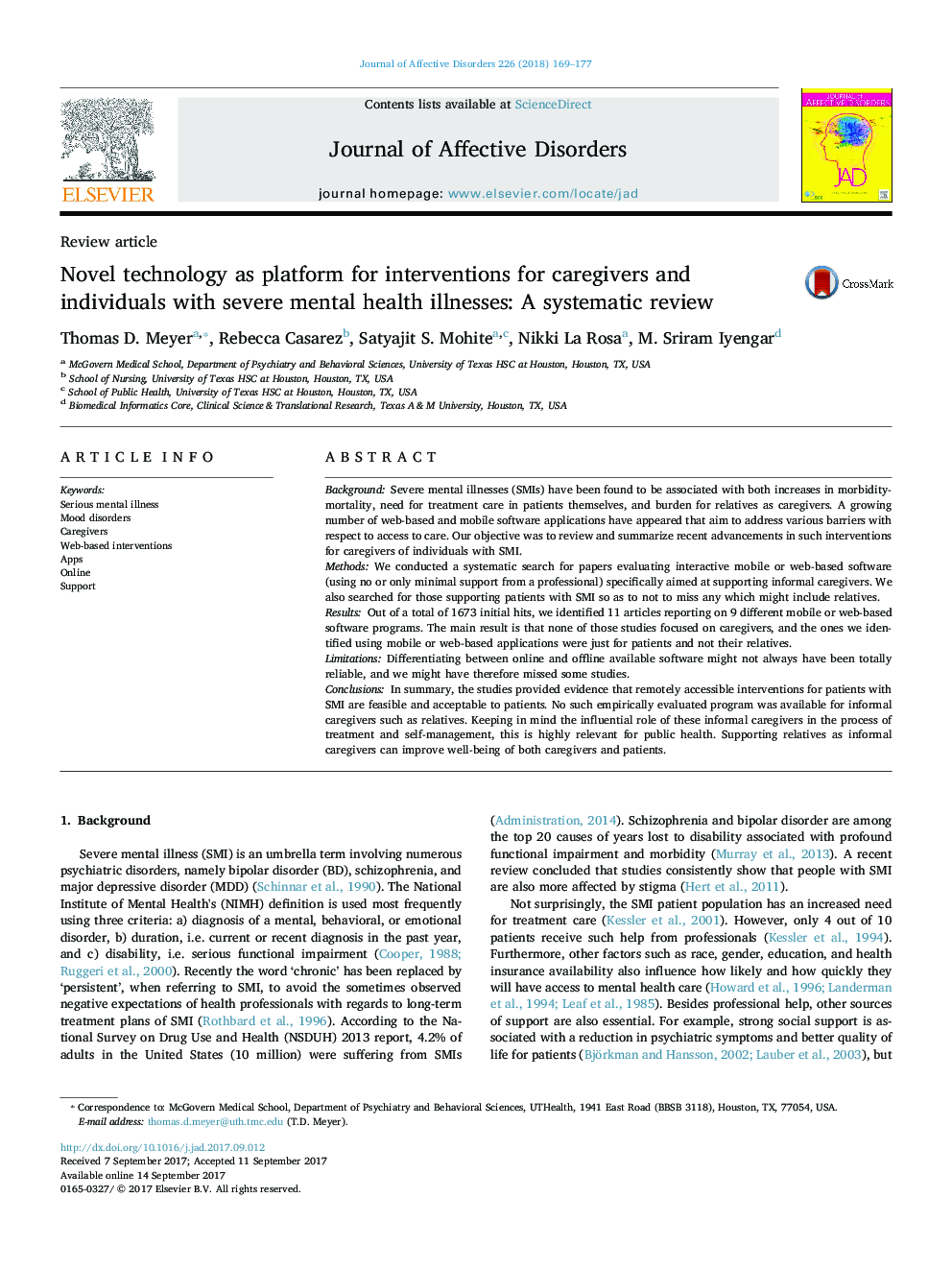| Article ID | Journal | Published Year | Pages | File Type |
|---|---|---|---|---|
| 5721650 | Journal of Affective Disorders | 2018 | 9 Pages |
â¢Systematic review of web-based and smartphone-based interventions for SMIs.â¢All studies focused on the patients themselves but not on their informal caregivers.â¢Only a few evaluated programs were identified but they proved to be feasible and acceptable to users.â¢Efficacy of those programs has not been tested for most of them.â¢There is a huge untested potential for such interventions, espescially when considering caregivers.
BackgroundSevere mental illnesses (SMIs) have been found to be associated with both increases in morbidity-mortality, need for treatment care in patients themselves, and burden for relatives as caregivers. A growing number of web-based and mobile software applications have appeared that aim to address various barriers with respect to access to care. Our objective was to review and summarize recent advancements in such interventions for caregivers of individuals with a SMI.MethodsWe conducted a systematic search for papers evaluating interactive mobile or web-based software (using no or only minimal support from a professional) specifically aimed at supporting informal caregivers. We also searched for those supporting patients with SMI so as to not to miss any which might include relatives.ResultsOut of a total of 1673 initial hits, we identified 11 articles reporting on 9 different mobile or web-based software programs. The main result is that none of those studies focused on caregivers, and the ones we identified using mobile or web-based applications were just for patients and not their relatives.LimitationsDifferentiating between online and offline available software might not always have been totally reliable, and we might have therefore missed some studies.ConclusionsIn summary, the studies provided evidence that remotely accessible interventions for patients with SMI are feasible and acceptable to patients. No such empirically evaluated program was available for informal caregivers such as relatives. Keeping in mind the influential role of those informal caregivers in the process of treatment and self-management, this is highly relevant for public health. Supporting informal caregivers can improve well-being of both caregivers and patients.
